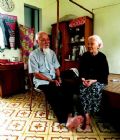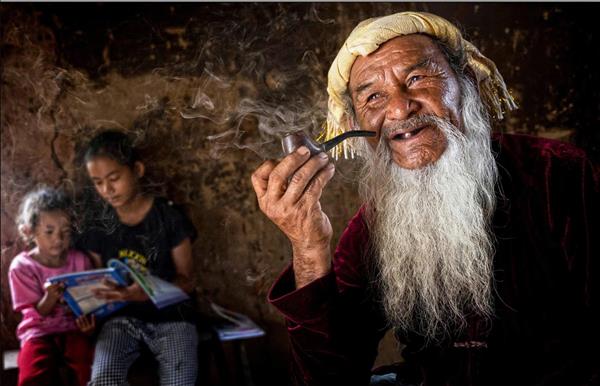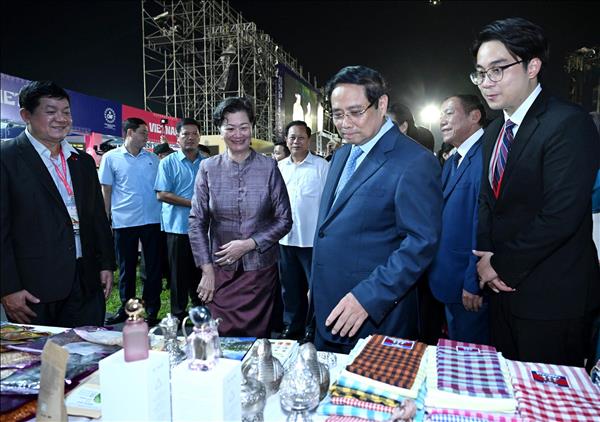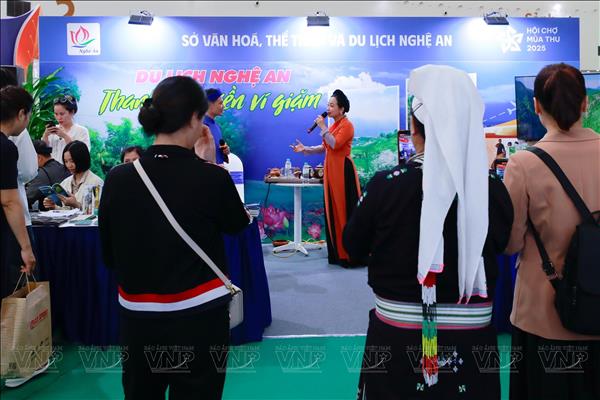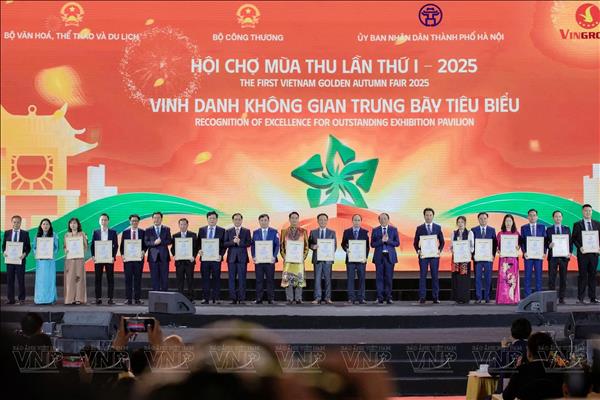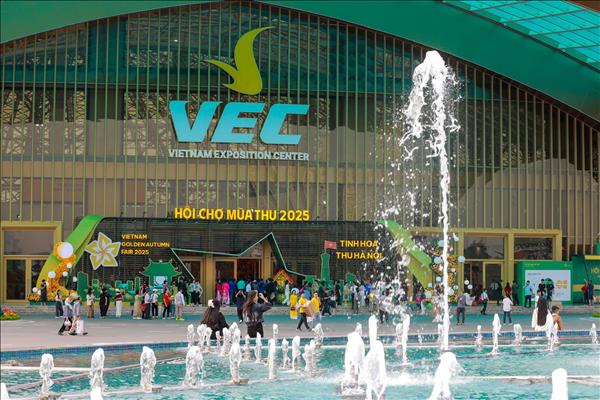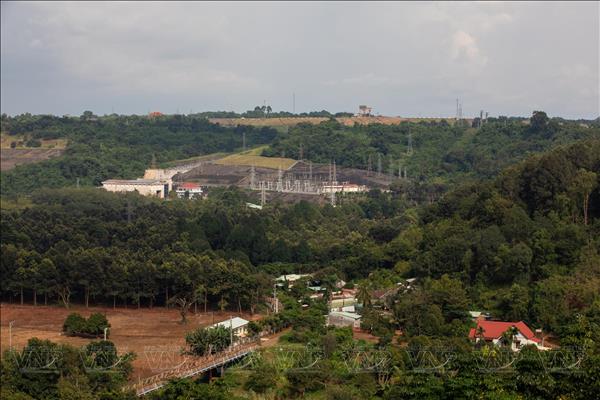|
|

A 4-generation family
(a French engraving).

A new joy.
nbsp;
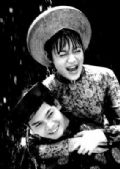
Family, a boundless
inspiration for writers, poets, musicians,
painters and
especially photographers. Many photographs of the family won awards
at
international and domestic photo contests,
including this one
Photo: Rhythm of Happiness - Gold
Medal-Australia-2001.
|
The family constitutes the central cell of the society
and a foundation for the cohesion of the community. Enhancing the rich
values of the fine traditions of the Oriental culture in its conception of
the family and cultivating "civilized families" is turning into an
extensive movement in the Vietnamese society of today.nbsp;
The Vietnamese Family of Yesterday
The Vietnamese family has taken
its roots from a homogeneous agricultural society. Its most general
characteristic lies in its formation in the cultivation of wet rice, hence
the settlement into communities of blood relationship. All Vietnamese
families are linked together and closely attached to their relatives,
their hamlets and villages, their native soils and homeland, even though
they have long lived and worked far from home in the urban areas.nbsp;
The Vietnamese family is well
associated with the structure of "Nha - Lang - Nuoc" (Home - Village -
Nation). It is this tripod relationship that has formed the philosophy of
life, the marvelous communal attachment as an eternal glue, the
characteristic and the age-old forte in the face of the devastation caused
by the natural catastrophes and the enemy-inflicted destruction. All this
will forever generate the might of the community of the Vietnamese nation
today and tomorrow. It is also for this reason that the Vietnamese, be
they at home or working overseas, irrespective of their religions, beliefs
and ideologies, rich or poor, belonging in any social stratum, are always
on tenterhooks, anxiously turning their thoughts to their families and
relatives, their ancestors and their homeland. The fine practice of
worshipping the ancestors has helped preserve the sustainability of the
traditional Vietnamese family, with an original cultural identity, and the
sacred cohesion of the family and the community. nbsp;
The relationship in the family
enshrines emotional ties. The ethics of man embracing the filial piety to
the grandparents and parents complies not only with the human heart but
with the way of the world as well. The parents loving the children, the
brothers and sisters loving each other also comply with the way of the
world, from whence ethics has been elaborated, thus raising emotional ties
into behavioral norms and code of conduct for all people, and therefore
the relationship between the members in the family and society bears fine
and civil expressions. This sentiment helps make the family atmosphere
cozy and fortifies the kids' confidence, and as a result they live with
self-respect and a sense of responsibility to the family. Vietnam and the
other East Asian countries have been profoundly imbued with Confucian
ethics: all should keep courteousness and civility and observe the
principle of " tam cuong, ngu thuong " (three orders and five
virtues).nbsp; The "tam cuong" includes the three feudal orders, an
essential conduct in the feudal society: king and subject, father and son,
husband and wife. The "ngu thuong" embraces the five virtues of the feudal
ethics, namelynbsp; "nhan, nghia, le, tri, tin " (benevolence,
righteousness, civility, knowledge and loyalty). The former indicates the
social order, closely associated with the latter as the five fundamental
virtues of the ethics of man, in the five pivotal relationships: king and
subject, father and son, brother and sister, husband and wife, and friend
to friend (also popularly known as "ngu luan"). Formerly the Oriental
ethics took, as its foundation, consensus, respect for the old and
concession to the young, harmony in the family, and in a broader sense, it
is the foundation for the construction of a society of peace and order,
unity and stability.
In the traditional family, the
members live in a strict order, a tie that binds them together but to some
extent restricts their personality and liberty as well as personal
independence, equality and democracy..., in which the individual finds it
easy to be pleased with the cozy nest, with little interest to travel far
from home and engage in adventures and interactions, and little eagerness
for progress and development.
The Vietnamese hold in high
regard the worshipping of their ancestors on a family altar. Those who die
with no altar for their worshipping will be seen as heirless. In the
Vietnamese mind, this is the awareness of continuity. Likewise, a people
and nation, just like a family, should live for good with time. The
Vietnamese never live for themselvesnbsp; nor for the present, but for
their children and their descendants and for the future of the nation. It
is the Vietnamese conception, mentality and culture.nbsp;
The Vietnamese Family of Today
Leading a new life
in peace, national industrialization-modernization, and international
integration, the Vietnamese make every effort to preserve and enhance the
fine cultural values of the traditional family. Besides the extended
(multi-generation) family, with grandparents, parents, children and
grandchildren sharing the same roof, the nuclear family (consisting of
only parents and children) accounts for larger numbers. The structure of
the family is smaller and more dynamic, with equality between males and
females, good education for the young and efficient primary healthcare. We
have early realized the downsides of the market mechanism may deteriorate
and degenerate the social morality and the family virtues. For this very
reason, it is a "must" to attach great importance to protecting and
enhancing the fine traditions of the family morality and culture, boosting
the education in the sense of responsibility for the family, and the
formation of the lifestyle, personality and the firm stuff of the
Vietnamese family. In its official documents, the State of Vietnam has
defined in clear terms: "It is necessary to raise the responsibility of
the family for the education and cultivation of its members in civilized
lifestyle, so that the family really becomes a cozy nest for all its
members, and a healthy cell of society."
Yet, the seamy
sides of the market mechanism are, in fact, somewhat changing and
weakening the cohesion of the family. The ties between the members of the
family tend to get loose. In many instances, family members' only chance
to meet in the day is briefly at dinnertime, hence have little chance to
exchange opinions on the children's schooling. And in some other families,
the disruption of sentiments between parents and children, brothers and
sisters, husbands and wives, because of money, is looming larger on the
horizon. The kids of some powerful civil servants and wealthy merchants
are indulged in depravation, disregarding law and order. Divorce,
gambling, drug-abuse ... seemingly on the rise, is a real concern.
For many years now,
Vietnam has launched a nationwide movement for "Civilized Families" and
"National unity for the cultivation of civilized life in residential
quarters". This is aimed at forming families with a civilized lifestyle,
keeping good relations between the family and the community, between the
family and the natural environment, and enhancing a civil awareness of
observance of law and order.
nbsp;The State of
Vietnam has promulgated legislation on fortification and amelioration of
the family, i.e. the Land Law, Law on Marriage and the Family, Law on
Inheritance, and others. It also launched family-related policies on
population, tuition fees and scholarships, hospital charges, female
employees and workers, the ethnic groups, war veterans, families of war
martyrs, housing, the elderly, families with scarce labour power or in
unfortunate circumstances.
The
Vietnamese people who have always held the family in high regard will
carefully preserve the identity of national culture, moderate and
creatively absorb the spiritual quintessence of the wisdom of humankind,
with a view to building civilized, happy and progressive
families.nbsp;
|
Le Do Ngoc - Head of Family Department,nbsp;Committee
for Population, Family and Children Affairs: Since time immemorial, the Vietnamese people,
with a wet rice civilization, have regarded family as the root unit.
Their sentiment and psychology have closely and firmly attached to
the family.
In the current trend of
international exchanges and integration, the Vietnamese family has
remarkably changed to conform to the development of the new era. The
equal and democratic relationship within the family is the major
feature of the modern family culture. Individual freedom is
developed and legitimate privacy of each individual is respected.
Parents pay more respect and attention to their children's opinions
and aspirations. Each member of the family is encouraged to develop
independence and creativeness. Above all, the fine traditional
values of Vietnamese family have been held in high regard. We pay
much respect for families that still maintain family traditions and
order in the hasty rhythm of modern life. Many families still
maintain the models "three generations co-existing" and, "four
generations under the same roof", in which all members live in
peace, respect the older members, love and care for one another and
attach much importance to marital relations.
The harmonious
combination of modern and traditional values will strengthen
Vietnamese family and people in the 21st century, laying firm
foundations for the long-term stability and development of the
nation. | |





